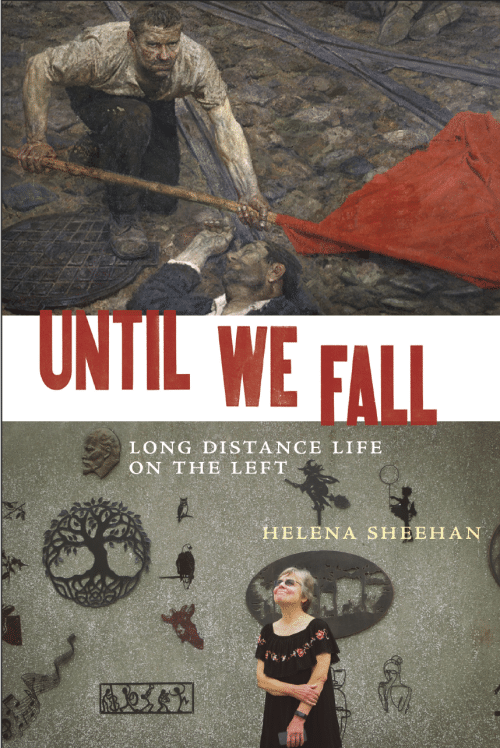Until We Fall: Long Distance Life on the left
By Helena Sheehan
$28/360 pages/978-1-68590-027-4
Reviewed by Seth Sandronsky for Counterpunch
Helena Sheehan’s autobiography Until We Fall: Long Distance Life on the left delivers a firsthand account of world-historic events such as the fall of the former Soviet Union and its impacts from the eastern bloc to the UK and US. Her book does not stop there, as she also travels to South Africa to participate in the fight for justice there.
For readers who did (not) live through the demise of the former Soviet Union, Sheehan offers a unique perspective of a disorienting social process. One outcome is and has been a blow to progressive tendencies and trends in the West. One could say that the Western left’s recovery from the restoration of capitalism in the fSU remains a work in progress. Current features of this social change are the rise of right-wing politics in and out of the US, replete with nationalism, racism and sexism.
The shadows of this history continue to cast a dark cloud over people and the planet. Take the new US Cold War against China and Russia. We see the slow motion train wreck of US economic power in decline and its military drive to dominate the world, directly and by proxy. The unipolar world order is changing, which Sheehan’s autobiography fleshes out in practical and theoretical ways. She is no armchair academic.
A university professor of philosophy, Sheehan dives deeply into the practices and thoughts of the parties and people, East and West, as the Soviet Union dissolved, and produced demoralized and disoriented working classes on both sides of the Berlin Wall. The attractive myths and harsh realities of capitalism have exacted a terrible toll on the past social order in the USSR and its former eastern bloc. The impacts on capitalist democracies are no less striking, especially left political formations. The death knell of social democracy is one case in point. For the American political system, the New Deal and Great Society is and has been under attack from the Democratic Party for decades. At the same time, the GOP, the white man’s party, so-called, descends into deeds and words of cruelty.
Two intellectual trends Sheehan wrestles with are positivism and postmodernism. I think of the latter as a force that enables identity politics. As we see, female and nonwhite faces in high places without strong social movements holding the corporate state and its upper class to account are cold comfort for poor and working people. Meanwhile, postmodernism strengthens social fragmentation, a curse to class analysis. The results encourage a rightward shift in politics, the outcome of a growing income and wealth gap between the prosperous few and everyone else.
Sheehan prefers the works of Marx as an analytical tool to understand world historic events such as the demise of the former USSR and rise of capitalism globally. NATO’s expansion eastward and subsequent Russian invasion of Ukraine is one outcome of this capitalist counterrevolution. It also generates armed conflicts and the threat of thermonuclear war. Sheehan notes the role of military operations in the downfall of the USSR, eventually “crashing into a brick wall in its war in Afghanistan.” Uncle Sam, meanwhile, suffers one military defeat after the next, as the domestic populace suffers on and off the job. The contradictions mount.
Her foray into the decades-long and violent struggle against apartheid in South Africa is a gripping narrative. Many questions exist. One is how did apartheid end in ways that strengthened racial capitalism? It is a complex tale of economics and politics that Sheehan illuminates as an active participant. She is a freedom fighter who walks the talk, at no place and time cloistered in the academy.
The struggle for social justice is a marathon. Sheehan is a revolutionary intellectual who shows and tells of the steps and missteps along the way. Hindsight is always 20/20. In her able hands, the past also lives in the present. That is a gift to the future.

Comments are closed.